Directory
- Share
Laura Blecha
- Alumni
- United States
- 2005 MPhil Physics
- St Edmund's College
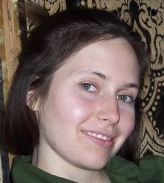
Laura Blecha
- Alumni
- United States
- 2005 MPhil Physics
- St Edmund's College
Braxton Boren
- Alumni
- United States
- 2009 MPhil Physics
- Clare College
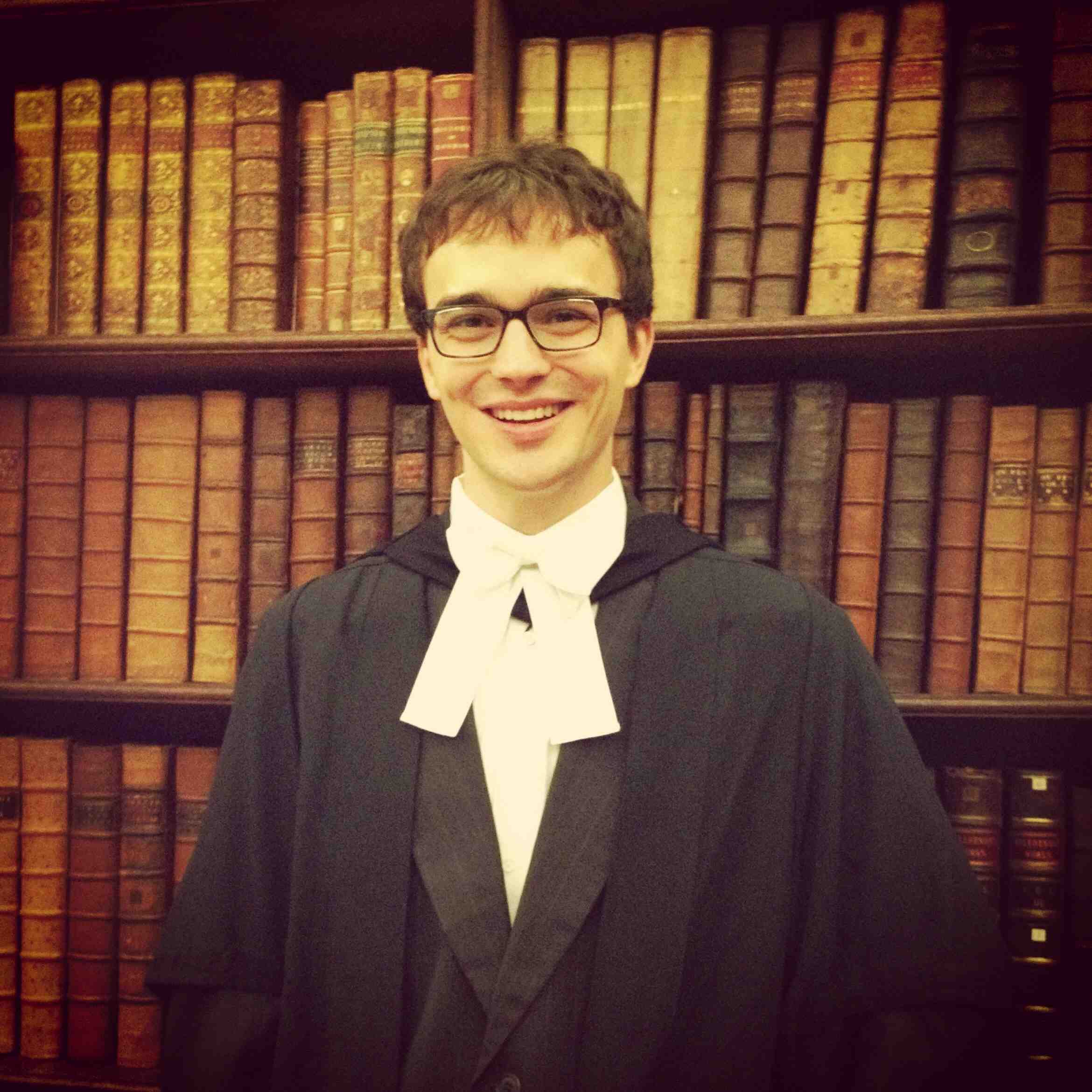
Braxton Boren
- Alumni
- United States
- 2009 MPhil Physics
- Clare College
Growing up, I had an uneasy feeling that some day I would have to make a choice between being a musician and a scientist. So far, that day has not yet arrived. As a music technology major at Northwestern University, I researched connections between video games and musical aptitude, and developed software to model spatial reverberation for multichannel audio systems. At Cambridge I studied for an MPhil in Physics at the Cavendish Laboratory, building acoustical models of Renaissance Venetian Churches. I later did my PhD in the Music Technology program at New York University, and I'm now a postdoctoral researcher in the 3D Audio and Applied Acoustics Laboratory at Princeton University.
Kristin Buterbaugh
- Alumni
- United States
- 2009 MPhil History, Philosophy & Sociology of Science, Techno
- King's College

Kristin Buterbaugh
- Alumni
- United States
- 2009 MPhil History, Philosophy & Sociology of Science, Techno
- King's College
I am reading for an MPhil in the History and Philosophy of Science with a concentration in the history of medicine. My research focuses on modern reproductive medicine and technology. Upon returning to the US, I will matriculate at the Mount SInai School of Medicine through the "Humanities and Medicine Program." I am a 2009 graduate of Northwestern University with a BA in American Studies and I hail from Pittsburgh, PA.
Daniel Choate
- Alumni
- United States
- 2002 Dip Economics
2003 MPhil Economics - Queens' College

Daniel Choate
- Alumni
- United States
- 2002 Dip Economics
2003 MPhil Economics - Queens' College
Jane Clarke
- Scholar
- United States
- 2025 MPhil American History
- Jesus College
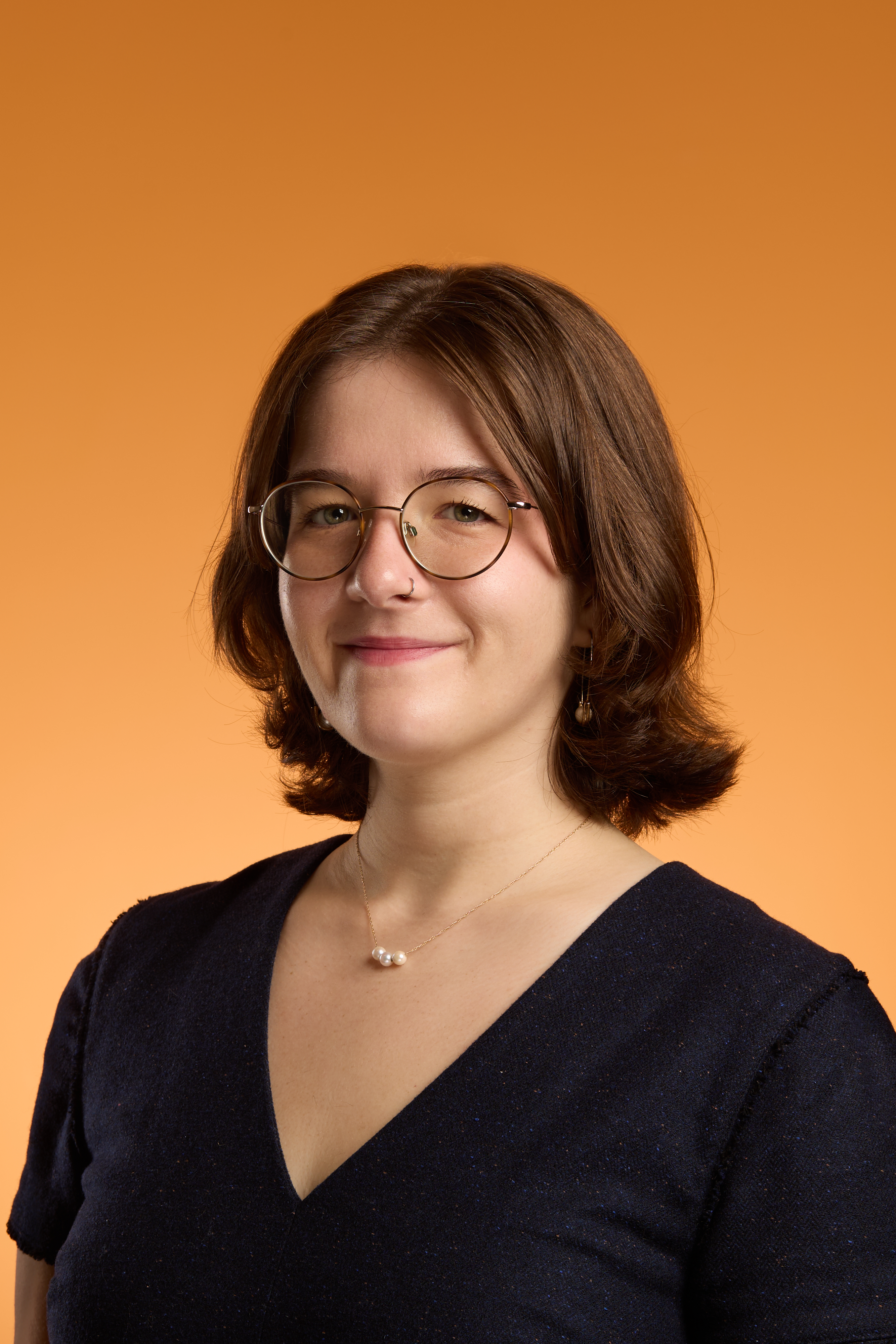
Jane Clarke
- Scholar
- United States
- 2025 MPhil American History
- Jesus College
I was born and raised in Chicago, Illinois, and received my B.A. in American Studies and History from Northwestern University. At university, I developed an interest in the history of American imperialism and the history of popular culture. I was particularly fascinated by the intersection of these fields–what could imperial themes in popular culture tell historians about how everyday people thought about their country’s empire? For my senior thesis, I explored ideologies of imperialism in popular American children’s texts from the first half of the twentieth century. I will continue this research at Cambridge, taking a comparative approach between American children’s books and classic British children’s texts. This research will shed light on the distinctive qualities of US imperialism at the popular level, not just the diplomatic one. I believe strongly in the impact of historical research, and have witnessed firsthand how a greater understanding of history can shape an individual's engagement with the world. After Cambridge, and with the support of the Gates community, I hope to not only share my research with the broader public but also strengthen a public commitment to historical engagement.
Previous Education
Northwestern University American Studies & History
David Dillon
- Alumni
- United States
- 2009 MPhil Public Health and Primary Care
2010 PhD Public Health and Primary Care - Wolfson College

David Dillon
- Alumni
- United States
- 2009 MPhil Public Health and Primary Care
2010 PhD Public Health and Primary Care - Wolfson College
My driving interest lies in stemming the spread of preventable disease through improved healthcare delivery and direct patient care. To academically prepare myself for this daunting task I am pairing an American M.D. with a Cambridge PhD in Public Health and Epidemiology, enabling me to understand both the clinical and theoretical aspects of my future work. As part of my PhD, I am working to define the burden of cardiometabolic disease in sub-Saharan Africa and explore possible associations between HIV, ART, and cardiometabolic risk factors in the region. This work took me to Blantyre, Malawi, where I lived for the first year of my PhD designing and implementing a population based cohort study in collaboration with the Malawi-Liverpool-Wellcome Trust. I have since returned to Cambridge to continue analysis of my data and look towards writing up my dissertation.
Daniel Ginzburg
- Scholar
- United States
- 2022 PhD Plant Sciences
- Darwin College

Daniel Ginzburg
- Scholar
- United States
- 2022 PhD Plant Sciences
- Darwin College
As an undergraduate at Northwestern University, I studied Earth sciences to better understand the fundamental processes underpinning the natural environment and how modern society has pushed those processes to the brink of collapse. I learned that one of the greatest sources of unsustainable natural resource consumption is modern agriculture. This was an auspicious realization, as the study of agriculture overlaps with many interesting disciplines from nutrition to environmental sustainability to biotechnology. I therefore decided to study agricultural sciences as a masters student at The Hebrew University of Jerusalem. I researched how light quality influences plant growth and resilience to stress. As a natural progression, I then moved into commercial greenhouse hydroponics where I worked to optimize environmental conditions most suitable for crop growth. I then returned to more academic pursuits at the Carnegie Institution for Science, where I continued to investigate how plants respond to environmental stress. At Cambridge, I study how plants tell time and how the circadian clock helps plants anticipate and adapt to environmental fluctuations. Insights gained from this research will support continued efforts to breed more efficient, productive, and sustainable crops.
Previous Education
Hebrew University of Jerusalem Agricultural Sciences 2018
Northwestern University Earth & Planetary Sciences 2013
Links
Jessica Grahn
- Alumni
- United States
- 2001 PhD Cognition Science
- Wolfson College

Jessica Grahn
- Alumni
- United States
- 2001 PhD Cognition Science
- Wolfson College
During my PhD, I investigated how motor areas in the brain respond when we listen to music, even if we stay absolutely still. I also examined how musical training affected neural responses, and how damage to certain motor brain areas affects our perception of musical rhythm.
Links
http://www.jessicagrahn.com
http://linkedin.com/in/jessica-grahn-1978998
http://www.mrc-cbu.cam.ac.uk/people/jessica.grahn
Benjamin Gross
- Alumni
- United States
- 2006 MPhil Criminology
- King's College

Benjamin Gross
- Alumni
- United States
- 2006 MPhil Criminology
- King's College
I'll be focusing on penal theory, paying particular attention to the moral status of revenge in justifications of punishment. I'm also interested in the mechanisms (often extra-legal) of punishment within prisons themselves. Also, I'm hoping to look into the scope of rational choice theory with respect to moral actors.
Andrew Gruen
- Alumni
- United States
- 2008 MPhil Modern Society and Global Transformations
2009 PhD Social & Political Science - King's College

Andrew Gruen
- Alumni
- United States
- 2008 MPhil Modern Society and Global Transformations
2009 PhD Social & Political Science - King's College
Previous Education
University of Cambridge MPhil Modern Society & Global Transitions 2009
Northwestern University BSJ: Journalism, Political Science 2007
Loren Guay
- Alumni
- United States
- 2015 MPhil Classics
- Newnham College

Loren Guay
- Alumni
- United States
- 2015 MPhil Classics
- Newnham College
I received my BA from the University of Michigan in Classical literature with a minor in translation studies. During the MPhil in Classics at Cambridge, my dissertation explored the materiality of wounding and the resonant relationship between bodily violence and the environment in Homeric epic.After Cambridge, I received an MA in Classics from UCLA along with a graduate certificate in writing pedagogy. Most recently, I worked as a content specialist in the Office of Distance Learning at Northwestern University's School of Professional Studies, assessing online courses for digital accessibility, fair use & copyright, and writing. I am also a creative writer of poetry and speculative fiction, with work published in numerous venues. As of Fall 2024, I am a doctoral student in the Joint Program in English and Education at the University of Michigan, where I study rhetoric and composition, especially as related to labor and empire in the modern university.
Previous Education
University of Michigan
Laura Hughes
- Alumni
- United States
- 2006 MPhil Chemistry
- Churchill College
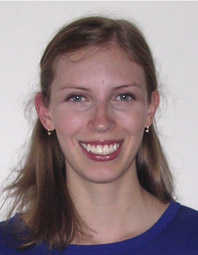
Laura Hughes
- Alumni
- United States
- 2006 MPhil Chemistry
- Churchill College
At Cambridge, I will be studying the use of computer modeling to predict the properties of molecules, especially drugs. I will then use this experience when I return to the United States to pursue a PhD in Chemistry at Stanford University. My research interests focus on the application of nanotechnology and molecular informatics to problems in biochemistry and medicine.
Thomas Johnson
- Alumni
- United States
- 2006 PhD Brain Repair
- Trinity College
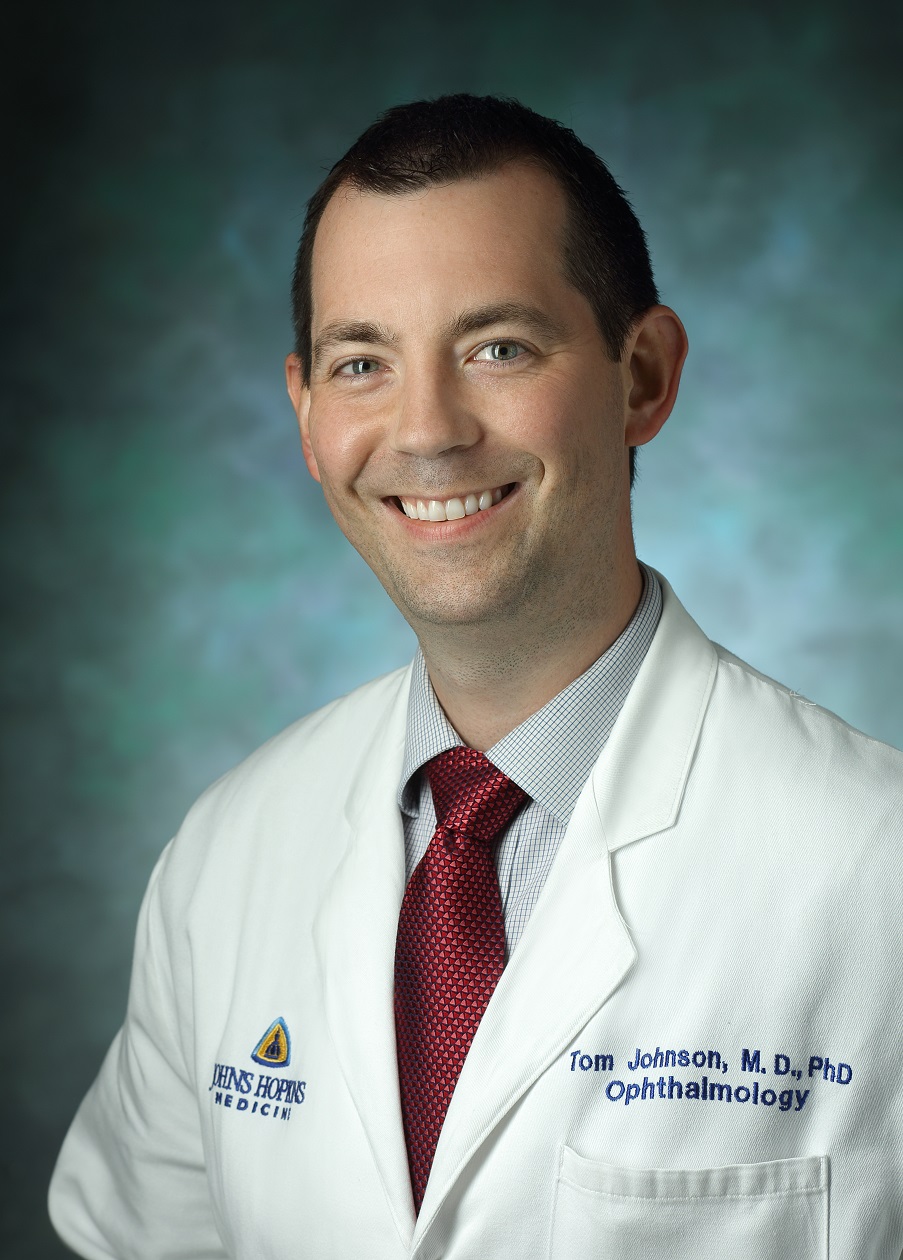
Thomas Johnson
- Alumni
- United States
- 2006 PhD Brain Repair
- Trinity College
I am interested in the neurobiological processes that lead to retinal ganglion cell death and dysfunction in glaucoma and other optic neuropathies. In particular, I seek to better understand the molecular mechanisms underlying axonal degeneration, dendrite retraction and afferent synapse loss, and cell body death in glaucoma. My goal is to utilize knowledge of these processes to develop targeted neuroprotective strategies to slow or halt RGC death and preserve vision for patients with glaucoma. I am also actively investigating the use of stem cell transplantation to achieve retinal ganglion cell placement, as a potential regenerative treatment for optic nerve disease, with a focus on anatomic incorporation of cell grafts, neurite growth and synapse formation, and electrophysiological retinal circuit integration.
Previous Education
Northwestern University BA Biological Sciences 2005
Links
https://www.hopkinsmedicine.org/profiles/results/directory/profile/10004407/thomas-johnson
http://johnsonlabjhu.com
https://www.linkedin.com/in/thomas-v-johnson-70210311
Aditi Malik
- Alumni
- India
- 2010 MPhil International Relations
- Newnham College
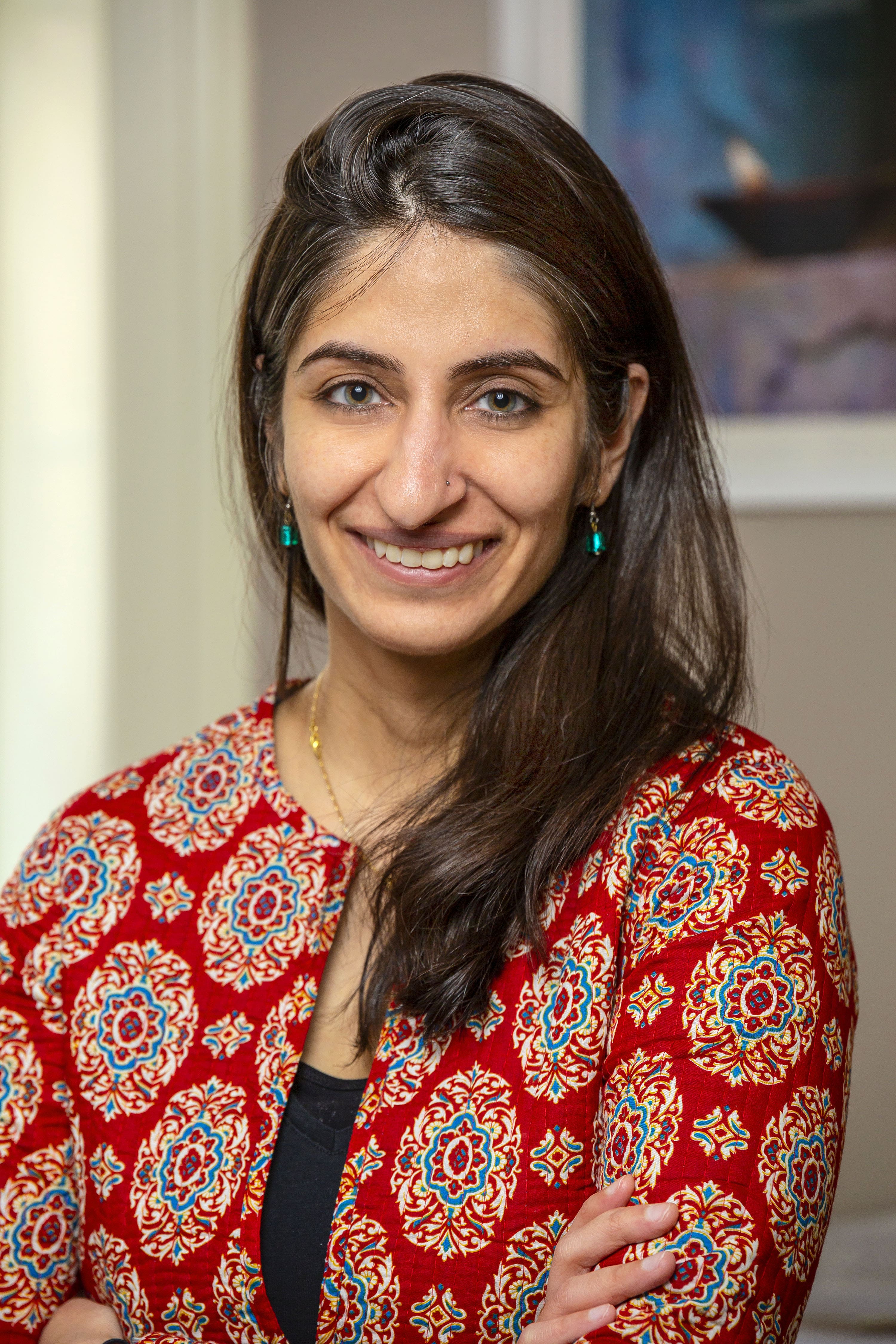
Aditi Malik
- Alumni
- India
- 2010 MPhil International Relations
- Newnham College
I am Associate Professor of Political Science at the College of the Holy Cross in Massachusetts. I earned my PhD in Political Science from Northwestern University. My research interests include the study of political violence, gender-based violence, and social movements and contentious politics,. Much of my work involves cross-regional comparisons of African and South Asian cases. I have conducted field research on various aspects of conflict and conflict-resolution in Kenya, Rwanda, South Africa, Cambodia, India, and Nepal. My first book, Playing with Fire: Parties and Political Violence in Kenya and India was published by Cambridge University Press in 2024. Drawing on a cross-regional comparison of Kenya and India along with subnational comparisons in the two countries, this book develops a novel theory about the relationship between political parties and conflict.
Links
https://www.aditimalik.net
https://www.linkedin.com/in/aditi-malik-b99880252
Amber North
- Alumni
- United States
- 2008 MPhil History & Philosophy of Science
2009 PhD Philosophy - King's College

Amber North
- Alumni
- United States
- 2008 MPhil History & Philosophy of Science
2009 PhD Philosophy - King's College
Rachel Pike
- Alumni
- United States
- 2006 PhD Chemistry
- Emmanuel College

Rachel Pike
- Alumni
- United States
- 2006 PhD Chemistry
- Emmanuel College
Chandler Robinson
- Alumni
- United States
- 2009 MBA MBA
- St John's College
Chandler Robinson
- Alumni
- United States
- 2009 MBA MBA
- St John's College
Dr. Robinson is co-founder and CEO of Monopar Therapeutics. In 2010, Dr. Robinson co-founded and was CEO of Tactic Pharmaceuticals. He helped lead Tactic through a successful sale of its lead compound. His passion is leveraging his interests in medicine, science, and finance to help bring new therapeutics to patients. The compound Dr. Robinson researched at Northwestern University as an undergraduate, and published on in Science, is currently in a Phase II clinical trial for Wilson Disease. Among his previous experiences, Dr. Robinson in 2008 worked at Onyx Pharmaceuticals in their Nexavar marketing division, from 2008-2009 as a co-manager of a healthcare clinic in San Jose CA, from 2004 to present as Founder and President of an undergraduate research focused non-profit, and from 2006 to 2007 at Bear Stearns investment bank. He was previously on the board of Wilson Therapeutics, and is currently on the board of Northwestern University's Chemistry of Life Processes Institute. Dr. Robinson graduated summa cum laude from Northwestern University, earned a master's degree in International Health Policy and Health Economics from the London School of Economics on a Fulbright Scholarship, an MBA from Cambridge University on a Gates Scholarship, and an MD from Stanford University.
Victor Roy
- Alumni
- United States
- 2009 MPhil Modern Society and Global Transformations
2012 PhD Sociology - King's College
Victor Roy
- Alumni
- United States
- 2009 MPhil Modern Society and Global Transformations
2012 PhD Sociology - King's College








